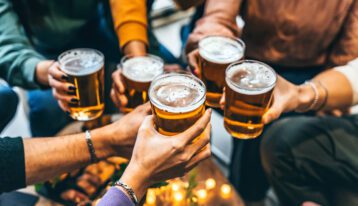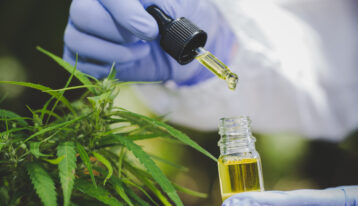By Cristina Utti MA,MFA
Anxiety is part of human nature. Thousands of years ago, the ‘fight or flight’ mechanism was a means of survival. Humans faced real threats of attack every day, and those who could respond the quickest were more likely to survive. The chemicals in the brain change when a dangerous situation is detected. These signals then manifest physically, causing the heart to race, pupils to dilate, and muscles to tense. Fear, anxiety, and emotional discomfort are normal feelings that every human being experiences. Sometimes, these feelings can be overwhelming. It is when fearfulness or anxiety limits the ability to function in daily life that there may be an underlying anxiety disorder.
Below is a list of common physical symptoms of anxiety:
- Fatigue
- Sweating
- Stomach problems
- Insomnia
- Sweating
- Dizziness or feeling light-headed
- Flashbacks
- Muscle aches
- Heart palpitations
- Shortness of breath
- Tightness in the chest
- Feelings of doom or hopelessness
According to The National Institute on Mental Health, about 31% of adults in the United States experience an anxiety disorder at some point in their lives. Many individuals who suffer from anxiety disorders may experience some or all of these symptoms for extended periods of time and use substances to self-medicate. Initially, it may feel as though the substance is working, as the symptoms are temporarily decreased. But using substances to ease discomfort only masks the problem for a short period of time; once the substance wears off, the individual is left feeling even worse. Anxiety and addiction go hand in hand, each feeding off of the other, leading to a vicious cycle.
Below is a list of common substances that make anxiety worse:
- Caffeine: High doses of caffeine, often found in coffee, tea, energy drinks, and some sodas, can lead to increased heart rate, restlessness, and jitteriness, which may worsen anxiety symptoms.
- Alcohol: While some people use alcohol to self-medicate and temporarily alleviate anxiety, it can lead to rebound anxiety as it wears off. Long-term use of alcohol can also lead to anxiety disorders.
- Nicotine: Smoking and nicotine products can have stimulant effects that may increase anxiety. Nicotine withdrawal can also cause anxiety symptoms.
- Prescription Medications: Some prescription medications, such as certain antidepressants, stimulants, and corticosteroids, can potentially exacerbate anxiety. However, these are prescribed for specific medical reasons and should only be adjusted under the guidance of a healthcare professional.
- Over-the-Counter Medications: Certain over-the-counter medications, like decongestants or weight loss supplements, may contain stimulants that can increase anxiety symptoms.
- Excessive Sugar and Refined Carbohydrates: Diets high in sugar and refined carbohydrates can lead to fluctuations in blood sugar levels, potentially triggering anxiety symptoms in some individuals.
- Lack of Sleep: While not a substance, sleep deprivation can significantly worsen anxiety symptoms. Adequate sleep is essential for emotional and mental well-being.
- Highly Processed Foods: Some artificial additives and preservatives found in highly processed foods may negatively affect mood and anxiety in susceptible individuals
Some common anxiety disorders that can lead to addiction are:
- PTSD (Post Traumatic Stress Disorder) – This condition can occur when an individual has been through a highly stressful situation physically and/or emotionally. Experiencing combat, sexual abuse, the loss of a loved one, a natural disaster, and other traumatic events can cause PTSD.
- Generalized Anxiety Disorder (GAD): People with GAD experience excessive, uncontrollable worry and anxiety about a wide range of everyday concerns. They may turn to substances like alcohol, drugs, or prescription medications to self-soothe or manage their chronic anxiety.
- Social Anxiety Disorder – Everyone may experience some anxiety when placed in an unfamiliar social situation. People with this disorder may experience symptoms of panic at the mere thought of an uncomfortable social situation.
- Panic Disorder: People with panic disorder experience recurrent, unexpected panic attacks. To manage their fear of future attacks, some may misuse substances like benzodiazepines, which can be highly addictive.
- Obsessive-Compulsive Disorder (OCD): While not as directly related to substance abuse as some other anxiety disorders, some individuals with OCD may engage in rituals or repetitive behaviors as a way to cope with anxiety, potentially leading to behavioral addictions.
- Agoraphobia: Agoraphobia often occurs alongside panic disorder. It involves a fear of situations or places where escape might be difficult, which can lead to people avoiding these situations and becoming more isolated. This isolation may increase the risk of turning to substances as a way to cope with anxiety.
- Separation Anxiety Disorder: Although typically associated with children, adults can also experience separation anxiety. In some cases, adults may turn to substances to deal with the anxiety related to being away from loved ones.
It’s important to note that while anxiety disorders can increase the risk of addiction, not everyone with an anxiety disorder will develop a substance use disorder or addictive behavior. The relationship between anxiety and addiction is complex and influenced by various factors, including genetics, environment, and individual coping mechanisms.
Mental illness can worsen over time. According to The Anxiety and Depression Association of America, people with high anxiety are two to three times more likely to abuse substances when compared to individuals who do not suffer with anxiety issues. Dual diagnosis is vital for most individuals seeking drug and/or alcohol abuse treatment, but it can be tricky to discern. Depression and anxiety that individuals feel while detoxing may simply be a manifestation of the drugs getting washed out of the body. Anxiety can occur in someone getting off of drugs simply because they need to change their coping mechanisms, which can be scary. Or, it can work the other way around: the individual seeking treatment initially began using substances as a way to feel better due to an anxiety disorder. Either way, it is imperative to get to the root of the addiction problem.
Contact us today at 806.307.2003 and let our skilled professionals walk you through the steps that lead to recovery.







